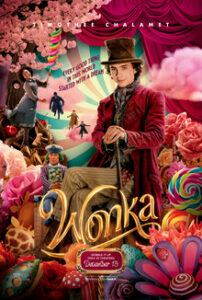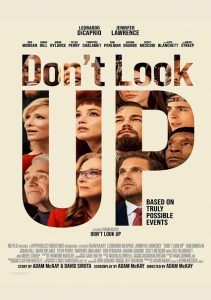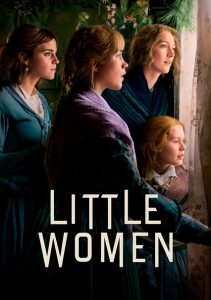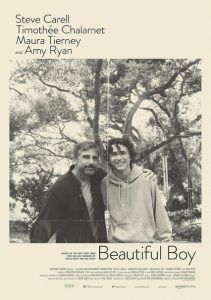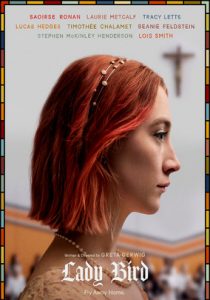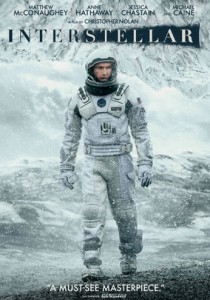Marty Supreme-2025
Director Josh Safdie
Starring Timothée Chalamet, Gwyneth Paltrow, Odessa A’Zion
Scott’s Review #1,519
Reviewed February 19, 2026
Grade: A
At a mere thirty years old, Timothée Chalamet has already amassed some terrific film roles in Call Me By Your Name (2017), Wonka (2023), and A Complete Unknown (2024).
Portraying unique and offbeat characters is his sweet spot.
Playing Marty Mauser in the film Marty Supreme (2025) is his best performance to date. He seamlessly turns a character the audience should dislike into an instant fan favorite who we laugh with, cry with, and root for to overcome life obstacles.
He is a nobody who desperately wants to be a somebody.
While Chalamet leads the charge, he is aided by strong supporting performances from Gwyneth Paltrow, Odessa A’zion, Kevin O’Leary, and Fran Drescher as characters who weave into Marty’s web of adventures.
Even actors appearing in only a few scenes are flawlessly cast, providing an authentic look at working-class and affluent white Jewish people in New York at the time. A racial harmony is also set by including a handful of black characters as dear friends of Marty’s.
Set in 1950s New York City, Marty is a young man with a dream of becoming the world’s best table tennis player, despite setbacks and a lack of respect for the sport.
With a needy mother (Drescher), two different on again off again girlfriends who are both married, one a childhood buddy and one twice his age (A’zion and Paltrow), a pathway to a dull career as a shoe salesman, and a tumultuous relationship with a successful businessman (played by Kevin O’Leary), the cards in life are stacked against him.
Yet, Marty consistently manipulates his way to a free trip to London and Tokyo, and several get-rich-quick schemes to get what he wants and to fulfill his lifelong dream.
Acting is only a part of the overall success of Marty Supreme. Thanks to Josh Safdie’s (Good Time, 2017; Uncut Gems, 2019) superior direction, all technical capabilities are flawlessly executed, and an unpredictable story is achieved.
The pacing is quick and organized, leaving never a dull moment in nonstop Marty adventures. Sequences like the search for a lost dog portray perilous moments of danger as the dog becomes a more prominent character than expected.
The editing is superior, making the fast-paced table tennis sequences both thrilling and exhausting. The quick dialogue, whether during phone conversations, in a dusty theater, or in an exquisite hotel room, all add up to a tight package of filmmaking.
Finally, the costumes and art direction more than adequately showcase a period when a few Americans were affluent. At the same time, the rest struggled to make ends meet while pursuing their own version of the American dream.
I’ve been a fan of Safdie since he was an up-and-comer making the independent film Good Time with his brother Benny, and he has since come into his own with the grizzled crime thriller Uncut Gems starring Adam Sandler.
Seeming to enjoy the New York setting in his films, just like director Paul Thomas Anderson prefers sunny California, he is steadily making his films highly recognizable.
Continuing on the theme of good film balance, Safdie incorporates naughty scenes like Marty’s humiliating bare bottom spanking in front of snickering businessmen, and a daring scene where he goes down on an aging film actress (Paltrow) in Central Park.
This ensures some humor is present.
The haves and have-nots support Marty’s journey. Wanting more than the life his depressed mother or shady friends have, Marty aspires to be in the big leagues. He will lie, cheat, or steal from whomever he needs to to achieve this.
And yet, Marty is kindhearted and humorous in his pursuits. He giggles when he can lounge in a lavish hotel and order room service or shmooze among rich theater types at a grandiose party.
Class distinctions are an important part of the character’s motivation for a better life.
Deservedly recognized with many awards-season accolades, Marty Supreme (2025) is an example of a young director coming into his own, with ample resources to make a gem of a film.
Oscar Nominations: Best Picture, Best Director-Josh Safdie, Best Actor-Timothée Chalamet, Best Original Screenplay, Best Casting, Best Cinematography, Best Production Design, Best Editing, Best Costume Design



